Work as a nurse with a non-EU diploma
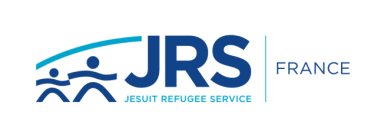 Proposed by JRS France , JRS FranceUpdated on 5 місяців тому
Proposed by JRS France , JRS FranceUpdated on 5 місяців томуNursing diplomas from outside the European Union are not recognized in France and refugees must start their studies again to obtain a French diploma and be able to practice.
It takes 3 years of higher education to obtain a State Nursing Diploma (DEI). The studies include theoretical courses and practical internships.
Nursing Training Institutes (IFSI) are the only establishments that can issue a DEI.
You must have at least a B2 level of French.
How to do it?
People with diplomas from outside the European Union must resume their studies at a Nursing Training Institute (IFSI) to complete their studies and obtain the State nursing diploma.
Four registration methods are possible:
- Register for the first year of IFSI via Parcoursup. Registration is done on the Parcoursup platform. Once registered, it is possible to validate some of the subjects you have already taken in your home country.
- Enter IFSI by competitive examination after three years of professional experience in France in any field (continuing professional training).
- Entry into IFSI after one university year (bridge after PASS or LAS).
- Accelerated nursing studies for people holding a diploma allowing them to practice medicine or midwifery in their country.
Furthermore, after the first year, nursing studies can be done through apprenticeship.
> Read: the Réfugiés.info file " Request the official translation of a document "
You will find information on the Parcoursup website about registration dates (which start in January) and how to proceed.
You will also find advice and details on nursing studies on Parcoursup .
After registration, it is possible to be exempted from some of the subjects already validated in the country of origin.
To do this, you must submit a file to a committee of the institute and then have an oral interview. It is this committee which decides on subject exemptions.
Here is the list of documents to include in your file:
- a CV,
- a cover letter,
- the original of the diplomas obtained,
- a comparison of the study program followed by the candidate in the country of origin compared to the French program.
It is possible to enter IFSI by competitive examination after three years of professional experience in France. Any adult, regardless of age or level of qualification, can apply for this competition.
Depending on the course, exemptions are possible for the first year.
The conditions to be met to register for the IFSI competition are to have worked for 3 years full-time and to have contributed to a social protection scheme during this period (36 months) in France and in any field (it is not necessary to have worked in the health field before, but this can help to be selected for the IFSI).
Your file must contain:
- supporting documents (e.g. employment contract) proving your experience,
- a detailed cover letter explaining what led you to consider retraining as a nurse.
After registration, you must take a competitive exam consisting of two written tests (general knowledge and mathematics) and an oral exam.
Please note that the nursing competition takes place every year around February-March.
To prepare for entry into IFSI and work, you can find reading, film and knowledge review tips (French, mathematics, anatomy) by clicking here .
A refugee can enter the second year of IFSI after a year of PASS (specific health access courses) or LAS (license with “health access” option).
People holding a diploma allowing them to practice medicine or midwifery outside the European Union can do accelerated nursing studies (six months) with internships in hospitals.
See: Order of July 31, 2009 relating to the state nursing diploma, article 9
You can find the list of institutions offering these training courses in Île-de-France by clicking here.
To register, you must submit an application and take an oral exam before a panel composed of the director of the IFSI, the educational coordinator, and a healthcare manager. This oral exam is used to assess your level of French, motivation, and career plan.
What happens next?
Nursing studies are expensive. The training generally lasts three years, with a schedule of 35 hours per week. It can therefore be difficult to work at the same time.
In some situations, it is possible to obtain funding for your studies at an IFSI or to receive aid.
There are two types of IFSI, public and private IFSI, and tuition fees vary depending on the type of institution and the region.
The cost of studies :
Training in public IFSI is free for all students continuing their studies and/or registered with France Travail.
However, the university registration fees for a bachelor's degree are €175 (for 2024-2025) and the Contribution to Student and Campus Life (CVEC) of €103 (in 2025) are not covered by the State, unless you are a scholarship holder.
You should also budget between € 90 and € 120 for registering for the nursing exam to enter the IFSI.
In private and Red Cross institutes, in addition to the competitive examination and university registration fees, tuition fees can vary between €700 and € 2,000 per year depending on the training structure.
Finally, the purchase of books and materials can vary between €30 and €200.
Financial aid:
- France Travail can provide up to €8,000 per year to people who have worked and paid contributions for at least six months. France Travail's assistance varies by region. You can find more detailed information on the different France Travail benefits here.
- It is also possible to benefit from a study allowance contract. The study allowance contract is a monthly scholarship, paid to a student from the second year of training, in return for a commitment to serve for 18 to 30 months within the hospital with which he signs the contract. This contract can be combined with the regional scholarship.
- If you live in Île-de-France , you can find all the available assistance by clicking here.
During the training, students benefit from internship and transport allowances.
For example, these internship allowances in 2025 are:
- €36 per week of internship in the first year
- €46 per week of internship in the 2nd year
- €60 per week of internship in 3rd year.
Doing a nursing apprenticeship also helps finance your studies.
From the second year onwards, training can be done through apprenticeship for people under 30. The student is employed by a hospital which will finance his studies and the student agrees to work as a nursing assistant during school holidays at the hospital.
To be able to do an apprenticeship, you must:
- Be under 30 years old or have Recognition of the Status of "Disabled Worker" without age condition
- Be admitted to a partner IFSI
- Have validated your first year of training and obtained the nursing assistant equivalence
- Having found an employer.
After obtaining your nursing diploma, you can work as a nurse in a hospital or as a freelancer.
It is also possible to continue studies to specialize, in 4 ways:
- Operating Room Nurse (18 months of study)
- Pediatric Nurse (1 year of study)
- Nurse Anesthetist (after 2 years of practice)
- Advanced Practice Nurse (2 years of study and 3 years of practice as a nurse)
Finally, after 4 years of practice, it is possible to access management positions by validating the health management diploma (10 months).
Studies
Training
Health
Start or resume health studies
Find a training course in health
Study or work in the health sector
16 contributors mobilized
 xavidum
xavidumAdmin
 a mugnier
a mugnierAdmin
 niknameTranslator
niknameTranslator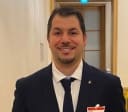 diplosamTranslator
diplosamTranslator hadudmak19Translator
hadudmak19Translator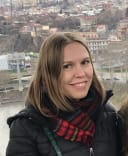 olga b.Translator
olga b.Translator meryem lakchiniTranslator
meryem lakchiniTranslator vladimir baturinTranslator
vladimir baturinTranslator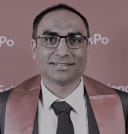 rohullah expertTranslator
rohullah expertTranslator marianneukraineTranslator
marianneukraineTranslator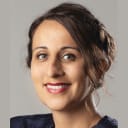 kim.delaunayTranslator
kim.delaunayTranslator mgoTranslator
mgoTranslator rzgar-bapiriTranslator
rzgar-bapiriTranslator noorTranslator
noorTranslator marianne24Writer
marianne24Writer irWriter
irWriter
